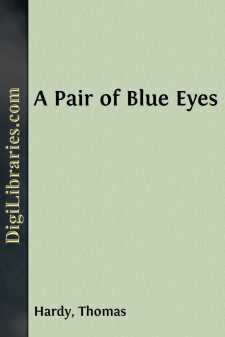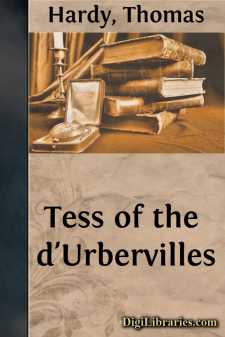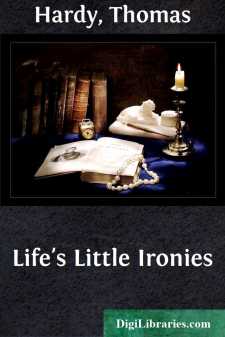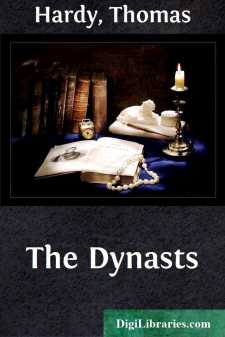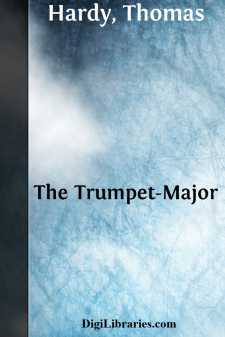Categories
- Antiques & Collectibles 13
- Architecture 36
- Art 48
- Bibles 22
- Biography & Autobiography 813
- Body, Mind & Spirit 142
- Business & Economics 28
- Children's Books 15
- Children's Fiction 12
- Computers 4
- Cooking 94
- Crafts & Hobbies 4
- Drama 346
- Education 46
- Family & Relationships 57
- Fiction 11828
- Games 19
- Gardening 17
- Health & Fitness 34
- History 1377
- House & Home 1
- Humor 147
- Juvenile Fiction 1873
- Juvenile Nonfiction 202
- Language Arts & Disciplines 88
- Law 16
- Literary Collections 686
- Literary Criticism 179
- Mathematics 13
- Medical 41
- Music 40
- Nature 179
- Non-Classifiable 1768
- Performing Arts 7
- Periodicals 1453
- Philosophy 64
- Photography 2
- Poetry 896
- Political Science 203
- Psychology 42
- Reference 154
- Religion 513
- Science 126
- Self-Help 84
- Social Science 81
- Sports & Recreation 34
- Study Aids 3
- Technology & Engineering 59
- Transportation 23
- Travel 463
- True Crime 29
A Pair of Blue Eyes
by: Thomas Hardy
Categories:
Description:
Excerpt
Chapter I
'A fair vestal, throned in the west'
Elfride Swancourt was a girl whose emotions lay very near the surface. Their nature more precisely, and as modified by the creeping hours of time, was known only to those who watched the circumstances of her history.
Personally, she was the combination of very interesting particulars, whose rarity, however, lay in the combination itself rather than in the individual elements combined. As a matter of fact, you did not see the form and substance of her features when conversing with her; and this charming power of preventing a material study of her lineaments by an interlocutor, originated not in the cloaking effect of a well-formed manner (for her manner was childish and scarcely formed), but in the attractive crudeness of the remarks themselves. She had lived all her life in retirement—the monstrari gigito of idle men had not flattered her, and at the age of nineteen or twenty she was no further on in social consciousness than an urban young lady of fifteen.
One point in her, however, you did notice: that was her eyes. In them was seen a sublimation of all of her; it was not necessary to look further: there she lived.
These eyes were blue; blue as autumn distance—blue as the blue we see between the retreating mouldings of hills and woody slopes on a sunny September morning. A misty and shady blue, that had no beginning or surface, and was looked INTO rather than AT.
As to her presence, it was not powerful; it was weak. Some women can make their personality pervade the atmosphere of a whole banqueting hall; Elfride's was no more pervasive than that of a kitten.
Elfride had as her own the thoughtfulness which appears in the face of the Madonna della Sedia, without its rapture: the warmth and spirit of the type of woman's feature most common to the beauties—mortal and immortal—of Rubens, without their insistent fleshiness. The characteristic expression of the female faces of Correggio—that of the yearning human thoughts that lie too deep for tears—was hers sometimes, but seldom under ordinary conditions.
The point in Elfride Swancourt's life at which a deeper current may be said to have permanently set in, was one winter afternoon when she found herself standing, in the character of hostess, face to face with a man she had never seen before—moreover, looking at him with a Miranda-like curiosity and interest that she had never yet bestowed on a mortal.
On this particular day her father, the vicar of a parish on the sea-swept outskirts of Lower Wessex, and a widower, was suffering from an attack of gout. After finishing her household supervisions Elfride became restless, and several times left the room, ascended the staircase, and knocked at her father's chamber-door.
'Come in!' was always answered in a hearty out-of-door voice from the inside.
'Papa,' she said on one occasion to the fine, red-faced, handsome man of forty, who, puffing and fizzing like a bursting bottle, lay on the bed wrapped in a dressing-gown, and every now and then enunciating, in spite of himself, about one letter of some word or words that were almost oaths; 'papa, will you not come downstairs this evening?' She spoke distinctly: he was rather deaf....


